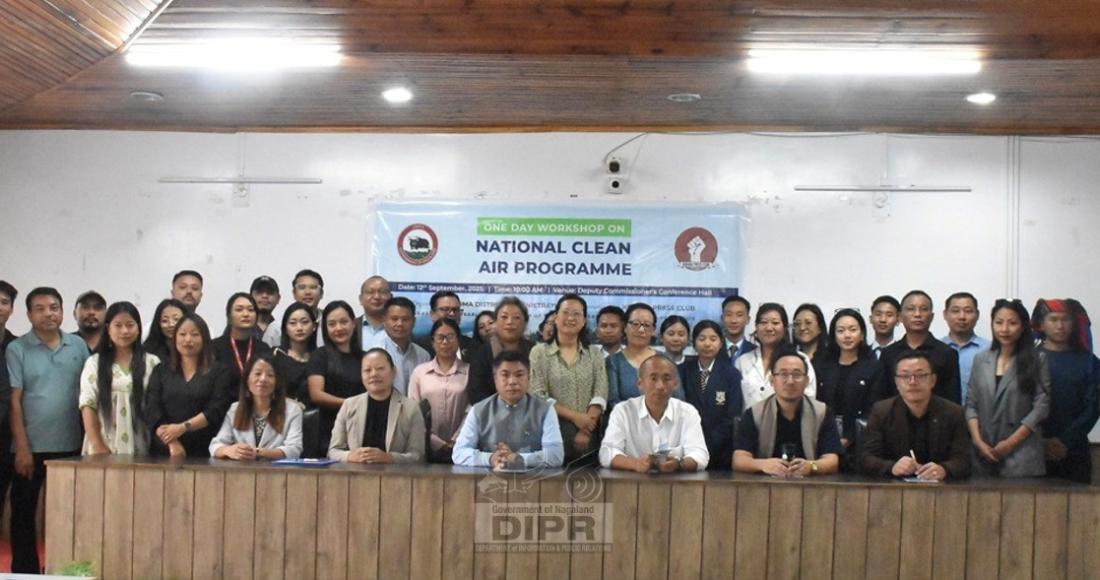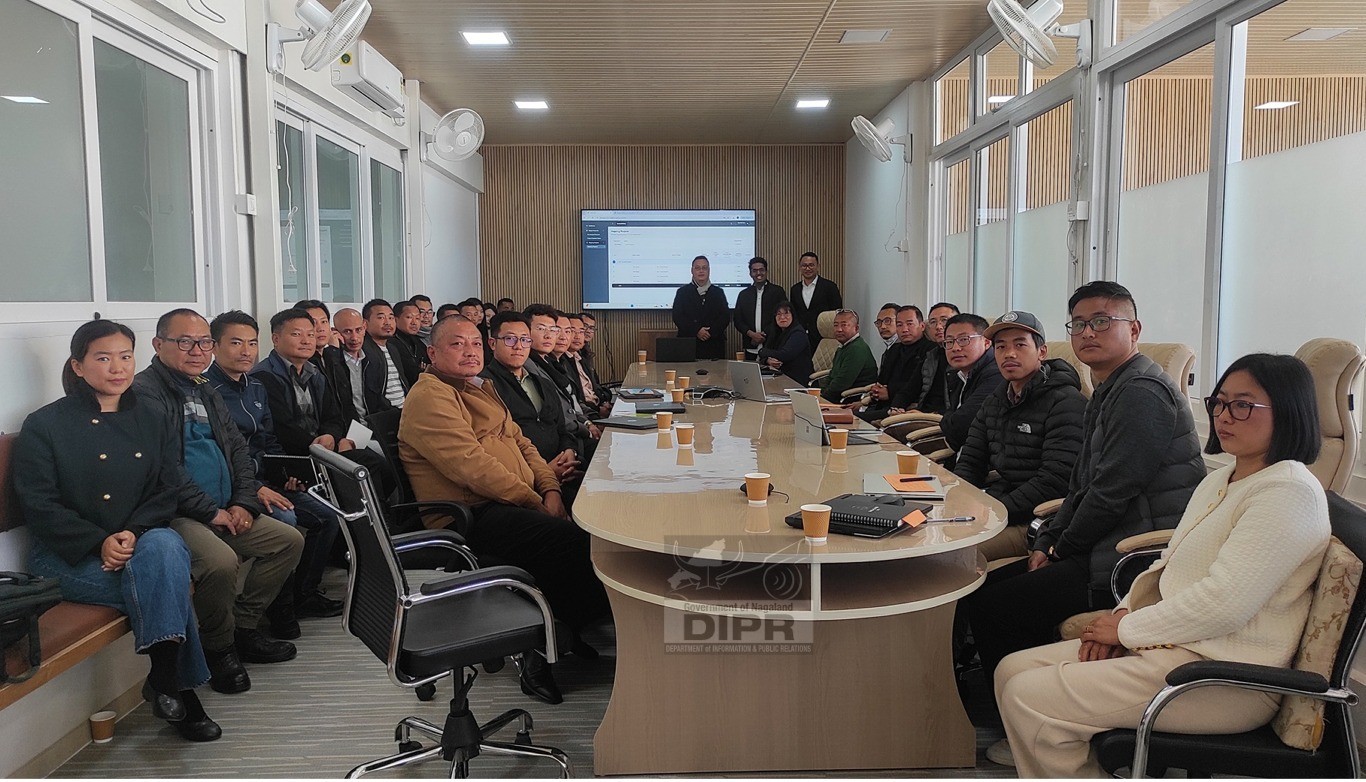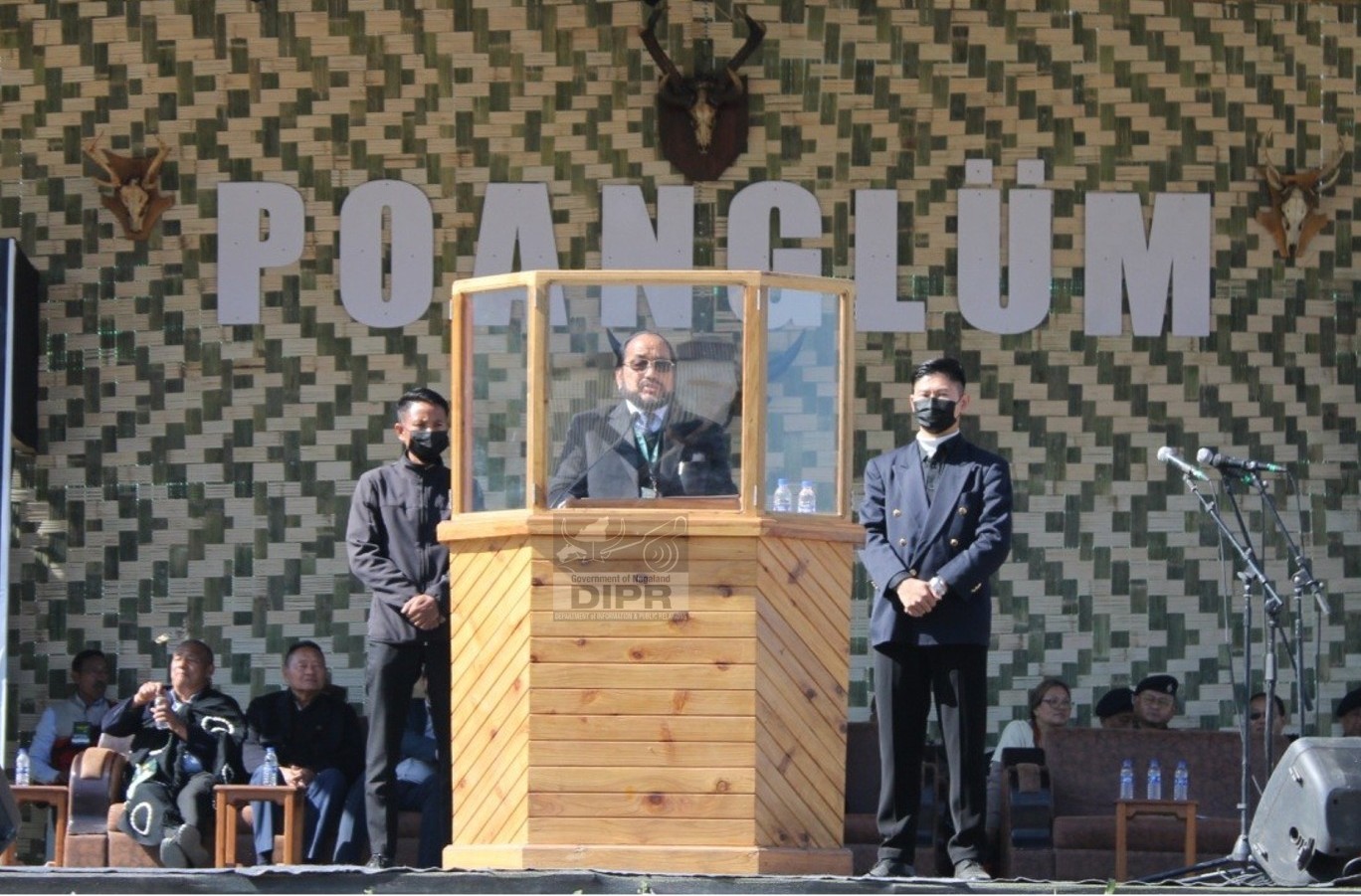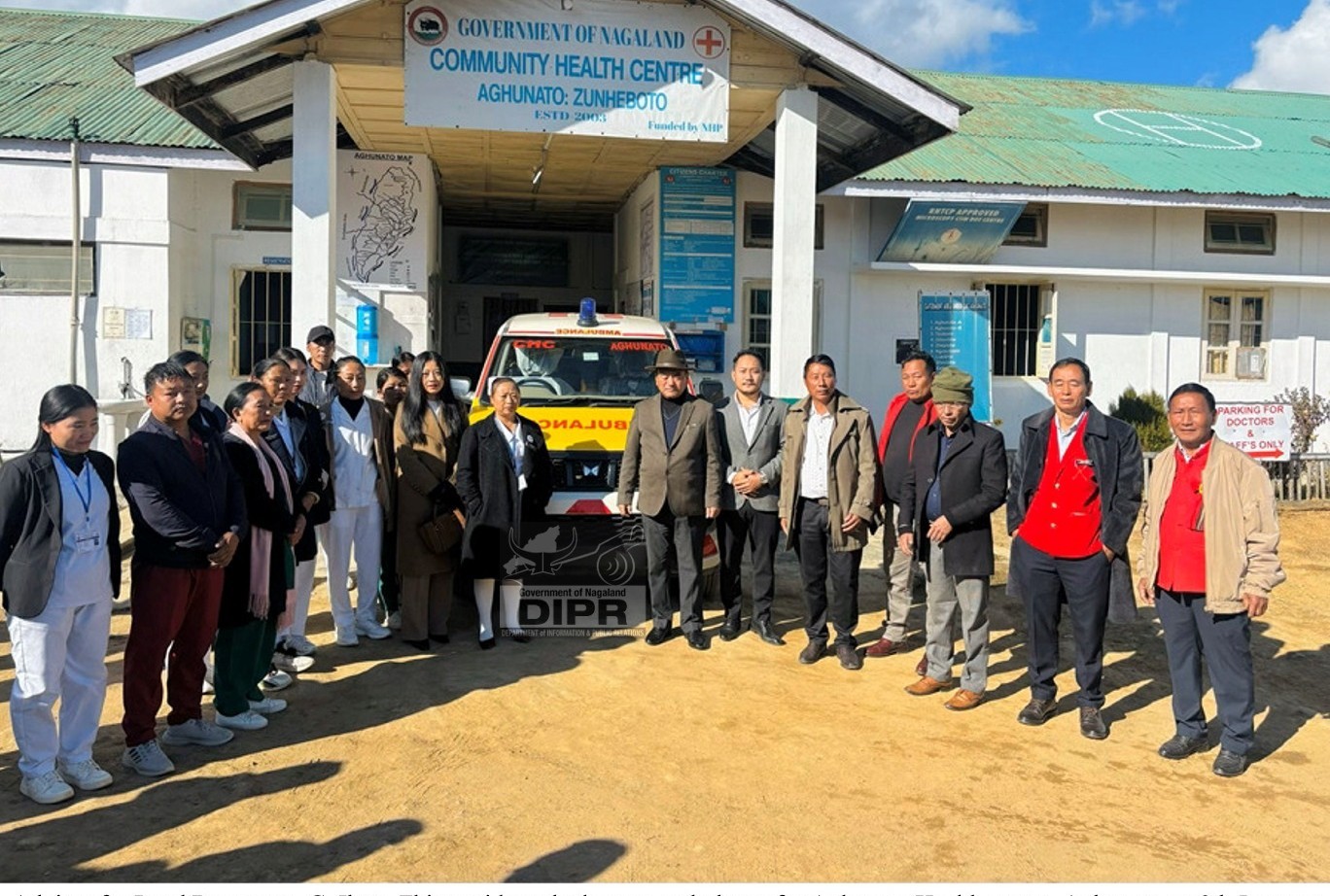A one-day workshop on the National Clean Air Programme (NCAP) was held on 12th September 2025, at the Deputy Commissioner’s Conference Hall, Kohima. The programme was organised by the Kohima District Administration in collaboration with the Kohima Press Club (KPC) as part of KPC’s yearlong Silver Jubilee celebrations.
Delivering the keynote speech, Deputy Commissioner of Kohima, B. Henok Buchem, NCS, congratulated the Kohima Press Club on its 25th anniversary and expressed appreciation for its collaboration in promoting awareness on clean air. He also highlighted the launch of the Deputy Commissioner’s Initiative “One day with Deputy Commissioner” for meritorious and interested students, which began earlier in the day with the first batch of students from Dr. N. Kire Government Higher Secondary School. Today is not just another gathering, but a meeting of some of the brightest people in town—from the press fraternity as well as our young students, he said, adding that Kohima, now 146 years old, has become home to every Naga community.
Emphasising the importance of environmental stewardship, the DC reminded that Kohima is among the 131 “non-attainment cities” in India where air quality has not met national standards. He said urbanisation must be managed carefully to preserve the forests and biodiversity that act as “natural allies” against pollution.
Citing advice from his late father—“Do what is right, not what is good”—Buchem called on the media to play a critical role in responsible reporting, accountability, and awareness building. “The media is the mirror and conscience keeper of our people. You are not just observers, but catalysts—your reporting shapes public perception, demands accountability, and builds a culture of precaution and responsibility,” he said.
He also encouraged the media to create public awareness and behavioural change in civic life. He cited everyday examples of pollution caused by careless practices such as littering, roadside dumping of construction materials, and releasing septic waste into rivers. He called for simple but effective measures like walking or cycling short distances, carpooling, and responsible waste disposal.
Highlighting government–media cooperation, the DC pointed to the MoU signed with FM Tragopan and the police to provide real-time traffic updates on radio. He further urged the press to raise public discourse on topics such as public transportation and the shift to electric vehicles, both of which could reduce air pollution.
Kohima’s air is a shared inheritance. Protecting it is not a single policy, or a seasonal campaign. It should remain our lifestyle—it should be a continuous, collective effort. Let us commit today to turning awareness into action, policy into practice, data into decisions, and collaboration into measurable improvement in air quality. Today, let us ensure that the skies over Kohima remain blue and clear for our children, our elders, and for many generations to come, the DC said in his concluding remarks.
The workshop also featured a keynote address by Dr. Riku Khutso, NCS, EAC, who explained the objectives and implementation of the NCAP since its launch in 2019. He pointed out that Kohima and Dimapur are listed among India’s non-attainment cities and stressed the importance of building community ownership of both assets and problems, including waste management.
KPC President, Alice Yhoshu, in her short speech, said clean air was the first and most essential requirement for healthy living, adding that “efforts for clean air should not be a one-time affair, but always a joint and collaborative effort.” She expressed appreciation to the district administration for actively involving the press club, calling it a first of its kind initiative.
Scientist B, Yanathung Kithan of the Nagaland Pollution Control Board, delivered a detailed presentation on air pollution with particular reference to Kohima city. He said the major contributors to poor air quality were road dust caused by poor road conditions and traffic movement, the open burning of waste, vehicular emissions from increasing traffic, and construction and demolition activities. He also cautioned that indoor air pollution from the use of firewood for cooking continues to affect households across the district. Kithan explained that such pollution has serious health consequences, leading to respiratory illnesses, cardiovascular diseases, and reduced lung function, and emphasised that even though Kohima does not have heavy industries, the cumulative effect of these everyday practices has led to concerning air quality levels. He underlined the need for constant monitoring and data collection, the adoption of cleaner fuels and technologies, and better waste management systems. He also drew attention to the national target under NCAP of reducing pollution levels by 40 per cent by 2026, remarking that if the programme can succeed in Kohima, it can succeed anywhere.
The programme was chaired by Vishü Rita Krocha, General Secretary of the Kohima Press Club and concluded with a vote of thanks by Narayan Bahadur, member of KPC. An interaction session followed, and tree saplings were distributed to participants as part of the initiative.
(Molungnenla, IA Kohima






